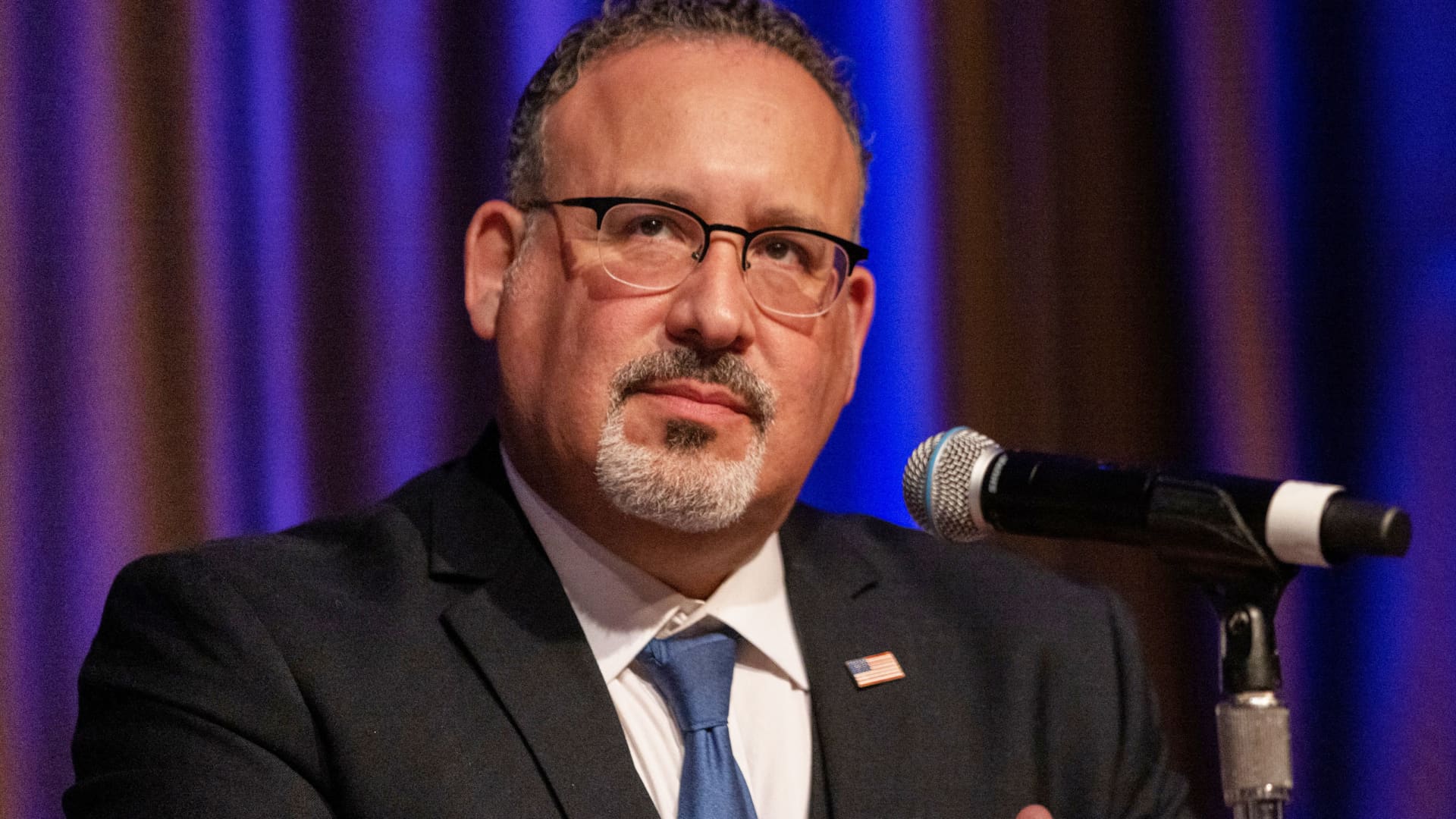U.S. Secretary of Education Miguel Cardona speaks during the National Action Network’s National Convention in New York on April 12, 2023.
Jeenah Moon | Reuters
The Biden administration announced on Tuesday a finalized plan to improve its oversight of higher education institutions and to bolster consumer protections for student loan borrowers.
“We are raising the bar for accountability and making sure that when students invest in higher education, they get a solid return on that investment and a greater shot at the American dream,” said U.S. Secretary of Education Miguel Cardona.
Some of the new rules aim to protect borrowers whose schools abruptly close, while other policies will better inform students about their rights and reduce their chances of being unable to pay down their student debt when they leave school.
More from Personal Finance:
‘Cash stuffing’ may forgo ‘easiest money’ you can make
These credit cards have had ‘increasingly notable’ high rates
Home ‘affordability is incredibly difficult,’ economist says
Under the regulations, which will go into effect July 1, 2024, colleges that receive Title IV financial aid will be required to provide “adequate” financial aid counselling to students, including information on the cost of attendance and varying types of aid available. They’ll need to provide sufficient career services, too.
Families will also begin to see standardized financial aid award offers that should make clearer the expenses of colleges, as well as the differences between aid that does and doesn’t need to be repaid.
“It will reduce student loan debt by increasing awareness of true college costs,” said higher education expert Mark Kantrowitz.
Outstanding education debt in the U.S. exceeds $1.7 trillion, burdening Americans more than credit card or auto debt. The average loan balance at graduation has tripled since the ’90s, to $30,000 from $10,000.
The Biden administration also plans to stop colleges from withholding the transcripts of students who fall behind on their bills.
“Ending the ability of colleges to withhold academic transcripts will enable more students to transfer colleges and apply for jobs,” said Kantrowitz.
Don’t miss these CNBC PRO stories:
Image and article originally from www.cnbc.com. Read the original article here.

